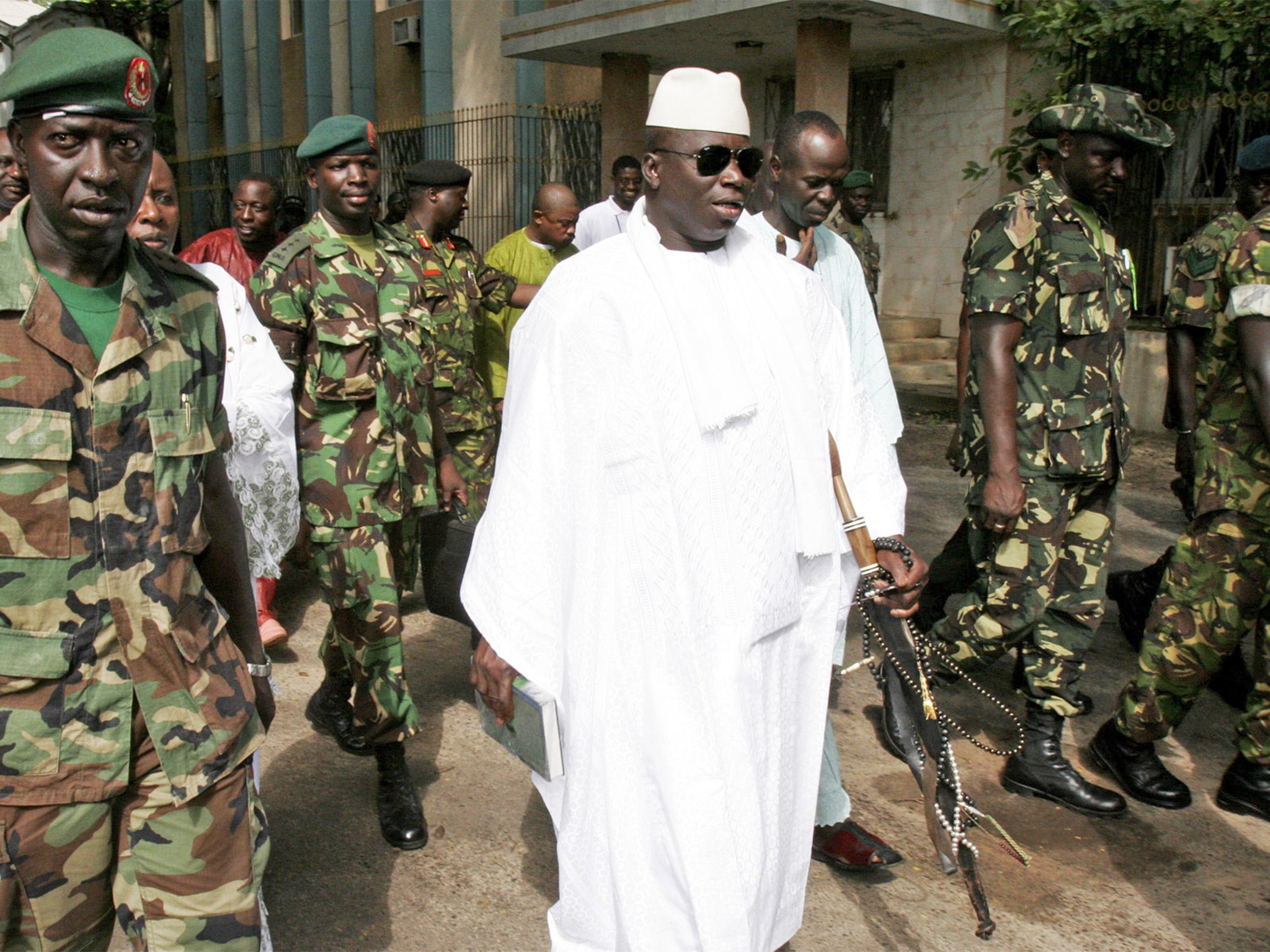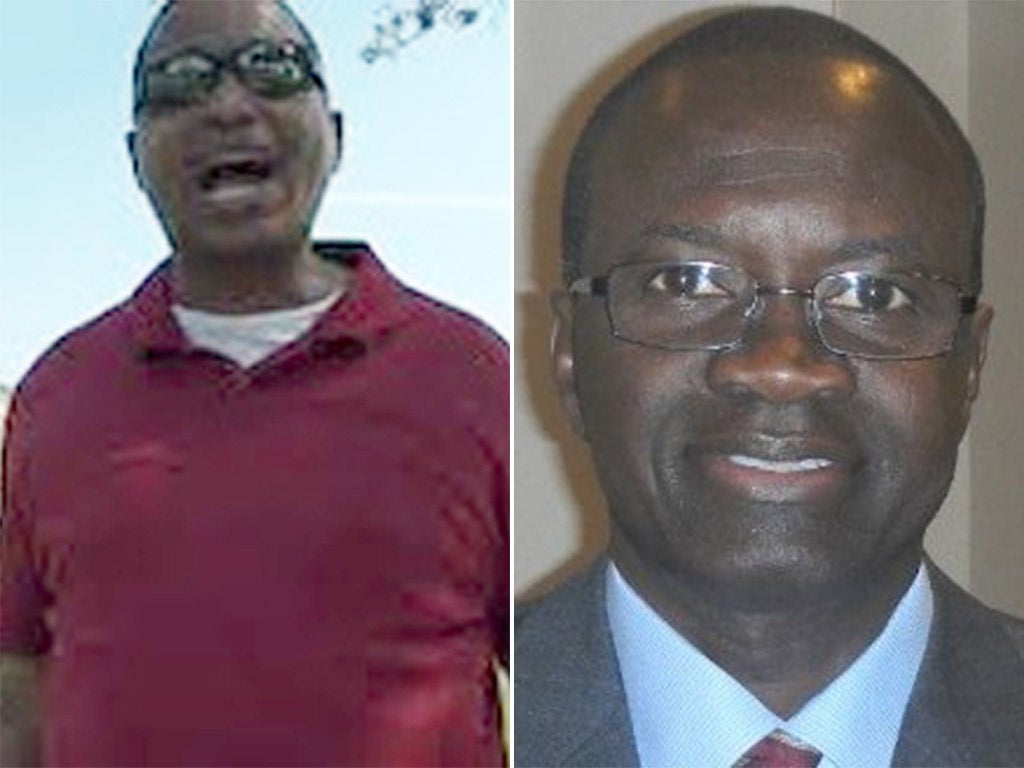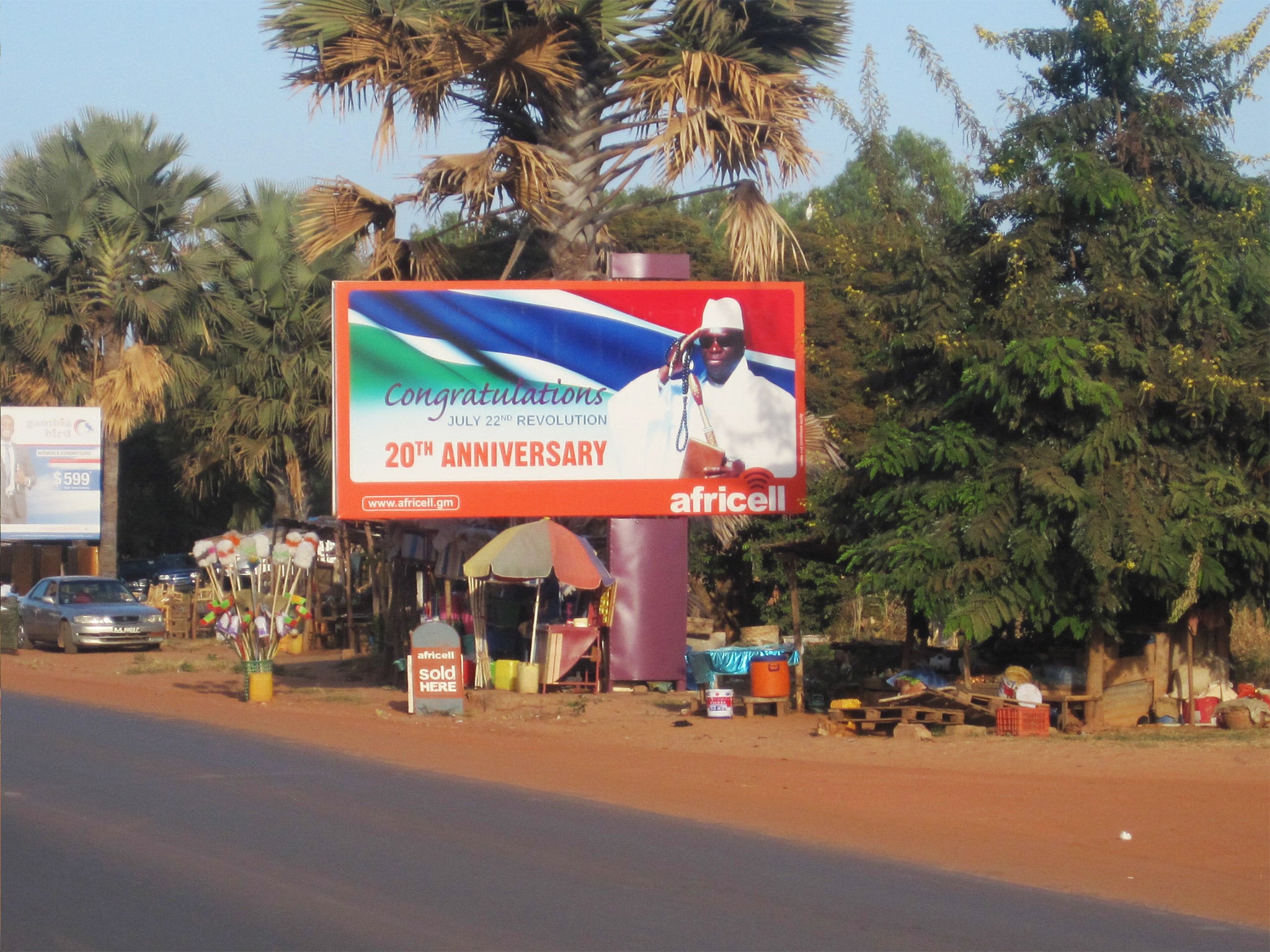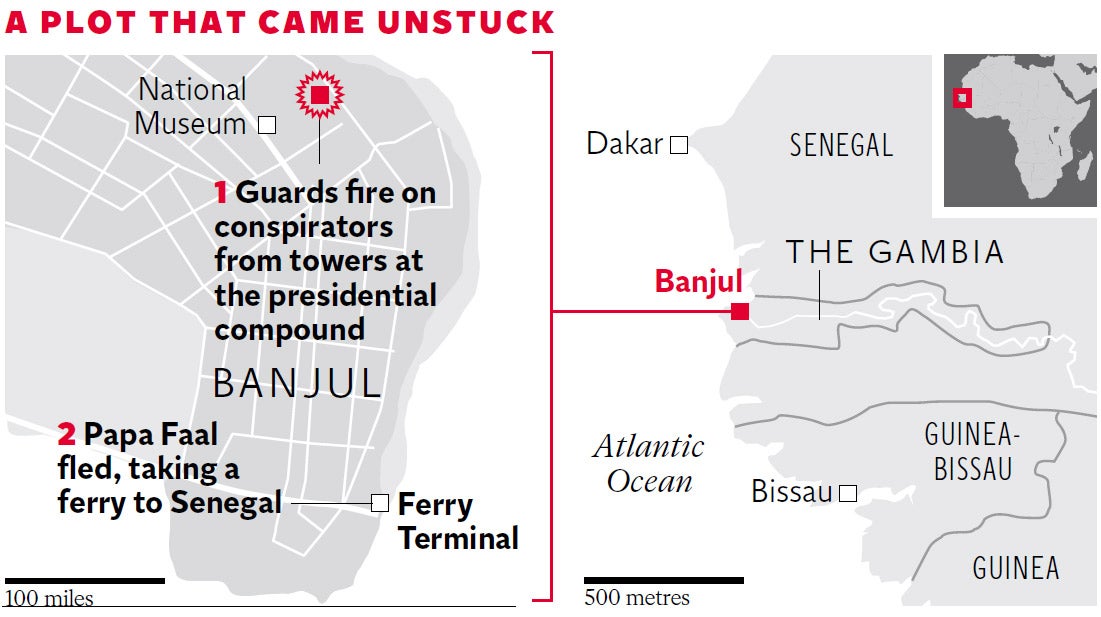Failed Gambia coup: Claims that plot to depose strongman President Yahya Jammeh was hatched in America
Two US citizens are accused of organising the group labelled freedom fighters by supporters, and chancers by critics

Your support helps us to tell the story
From reproductive rights to climate change to Big Tech, The Independent is on the ground when the story is developing. Whether it's investigating the financials of Elon Musk's pro-Trump PAC or producing our latest documentary, 'The A Word', which shines a light on the American women fighting for reproductive rights, we know how important it is to parse out the facts from the messaging.
At such a critical moment in US history, we need reporters on the ground. Your donation allows us to keep sending journalists to speak to both sides of the story.
The Independent is trusted by Americans across the entire political spectrum. And unlike many other quality news outlets, we choose not to lock Americans out of our reporting and analysis with paywalls. We believe quality journalism should be available to everyone, paid for by those who can afford it.
Your support makes all the difference.A small group of men gathered in woods near the compound of The Gambia’s strongman President, Yahya Jammeh. They were dressed in black fatigues and heavily armed. An audacious but doomed coup was about to begin.
Liberators of the oppressed, or chancers with their eyes on a West African nation, the band of men had travelled to The Gambia after months of plotting. But from the beginning things went wrong.
Once in The Gambia, from early December onwards, the group carried out “mental dry runs” of their attack to depose the President. But plans to ambush Mr Jammeh were almost immediately scrapped.
They had hoped, investigators say, to block the President’s convoy, ambush his vehicle and force Mr Jammeh to surrender. They were willing to “shoot him if he fired at them” when stopped between his high-security farm complex in Kanilai and the state palace in the capital, Banjul.
The multi-car high-speed presidential convoys are dangerous. Those who accidentally get in their way, it is said, are mowed down as the cars speed past. Soon the plotters learnt that Mr Jammeh was leaving The Gambia on Boxing Day and decided to attack his palace instead. After meeting in the woods before dawn on 30 December, they split into two assault teams to storm the compound.
“The group believed that Gambian army soldiers would drop their weapons and flee, being unwilling to die for President Jammeh,” said the FBI of the coup attempt. The plotters were wrong. The guard had been increased. One of the assault teams fired a shot in the air, hoping the soldiers would flee. Instead, they began firing on the plotters from guard towers around the compound. Most of the plotters died, a few fled. Two – code named “Fox” and “Dave” – have been arrested and are in custody in the US.
The alleged leader was Texas resident Cherno Njie, 57, who ran a company in Austin. Mr Njie (aka “Dave”) is a US citizen of Gambian descent whose firm builds affordable housing. Joining him was Minnesota resident Papa Faal, 46, a dual US-Gambian citizen.

Mr Faal was well equipped to join the coup – he told US agents he had served in the US air force for seven years and the army for three years before being discharged in March, 2012. It was Mr Faal, who turned himself in at the US Embassy in Senegal days after the coup failed, who identified Mr Njie as the brains behind the operation and one of its leaders and main financiers. Mr Njie was, Mr Faal said, planning to serve as The Gambia’s “interim leader” after the coup.
The plan, according to an affidavit submitted at the US District Court in Minnesota and written by FBI special agent Nicholas Marshall, was allegedly hatched in the US in August. Mr Faal, who had not lived in The Gambia for 23 years, said he agreed to join the coup because he had become disenfranchised by the way President Jammeh – who once promised to rule for a “billion years” – was rigging elections.
Mr Jammeh is no stranger to Gambian coups: the army lieutenant came to power by overthrowing the country’s first president, Sir Dawda Kairaba Jawara, in 1994.
Today, Mr Jammeh’s face is on huge posters on every third lamp post or pillar. He is dressed in flowing white robes and holds a wooden staff. His titles are written in full on the billboards: His Excellency Sheikh Professor Dr Yahja Jammeh.

His post-coup crackdown included shutting down a popular radio station, Teranga. Dozens of soldiers and civilians are rumoured to have been arrested. Today, in a move that mystified observers, the President reshuffled three major posts in his cabinet.
Mr Faal believed a larger group would travel to The Gambia to carry out the plot. However, in the end there were only between 10 and 12 men. US investigators say there were as yet unidentified British plotters among them. Mr Njie’s role was to stay behind while the coup was carried out, Mr Faal claims. The Texan was to then “meet the commander of the Gambian army and convince him to support the change in leadership”.
It was hoped that the dozen or so plotters would be joined by 160 soldiers who had supposedly agreed to join the coup. Mr Njie, who faces charges in Minnesota of organising the coup with Mr Faal, is believed to have provided the money for the operation. Each of the participants is said to have been given about $4,000 to pay bills and expenses in The Gambia.

An operations plan was stored online, accessible to members of the group. Conference calls were arranged every fortnight to discuss plans, said Mr Faal. The plotters assembled Google satellite images of The Gambia and collated detailed maps of the capital, Banjul. Some were kept at Mr Faal’s property in Minnesota, in a manila folder labelled “Top Secret”.
Agents also discovered notes on weapons at Mr Njie’s property in Texas, and a document titled: “Gambia Reborn: A Charter for Transition from Dictatorship to Democracy and Development.”
Across the US, members of the Gambian diaspora have reacted angrily to the arrests. Yero Jallow, an activist, has started a petition to get Mr Njie and Mr Faal released.
Outside court in Minnesota this week, he described Mr Faal as a “freedom fighter”. He told The Independent: “They are heroes. The people wanted to liberate their country.”
Mr Faal is due to appear for a bail hearing on Thursday.
Join our commenting forum
Join thought-provoking conversations, follow other Independent readers and see their replies
Comments